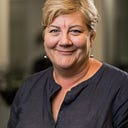School is where the heart is for some SA kids
Over many years working with children and young people, I have met kids who are enthusiastic, energetic, optimistic and idealistic. I have also met kids who are frustrated and desperate, angry, heartbroken and lost.
These two kinds of children and young people live and play side by side in childcare centres, schools, clubs, libraries, homes, youth centres, shelters, and theatres, across all ages, cultures and ethnicities.
No matter where, or who they are, or what their individual or collective experiences have been, they are all united by five basic human needs:
· someone to love
· somewhere safe to live
· someone to care about them
· something meaningful to do; and
· something to hope for.
Many children and young people in South Australia have all of these things in their lives already, and in the midst of the current health crisis, are doing fine. They will be okay. They have the personal and family connections and resources needed to build resilience.
Some of our children and young people might not have all of these essentials in their lives, but they do have a few, and with the right support over the next few months they too are likely to maintain their current levels of wellbeing, and not slip backwards.
There are, however, other children and young people in our community, in numbers far greater than we care to imagine, for whom these basic needs are not being met, and will not become available anytime soon. These kids don’t have strong relationships, or safe homes, or caring adults around them. They’re often living moment to moment and can’t think about, let alone plan for, the future. For many of these children and young people, the place where they find regular comfort, someone to care about them, and something meaningful to do, is at school.
For these children school is a sanctuary. It provides them with the respite they need, away from chaotic home lives, from heavy loads caring for adults, and brothers and sisters.
It supports their connection to things they have repeatedly told me are important to them; education and learning, their extended family, their friends, pets, and activities and places they need to be to participate in their community — ie places where they experience a sense of belonging, connectivity and purpose other than the one they have at home.
School too is often a sanctuary for children living with disabilities and their carers, for children living in poverty and their loving families, and for those who have mental health issues or who have caring responsibilities. For these children and young people and their families, school is not just about subjects and the learning that happens in the classroom. For these kids, school is much more than this.
It is about the clubs, excursions, camps, events, performances, assemblies, committees, and other activities they’re involved in — that make and shape who they are as individuals. That supports their sense of identity and brings experiences of achievement and mastery, along with joy and happiness, into their lives.
At school, it is the relationships these children and young people have with their friends, class mates, team mates, teachers and counsellors that makes the difference in their lives. Many children and young people often tell me about the teacher who has helped them learn and by doing so changed their lives. Others have talked about the friend who has always been there for them, or the sports teachers or drama coach who has gone out of their way to ensure they could attend the extra curriculum activity they enjoy. These are the connections that are especially important when you don’t have a strong role model, through a parent or other adult at home, who for whatever reasons just can’t be there for you.
We know that wellbeing and care are linked to achievement. For children with positive relationships, living in encouraging environments, able to access learning resources with a study space, fridge full of food, and endless toys and games to play with, being home from school for the foreseeable future will be OK. They will likely get bouts of severe cabin fever, but they will continue to learn and achieve regardless.
However, those children and young people whose families are complex, and which are unable to provide them with the appropriate care and resources they’re entitled to, are particularly vulnerable now. More so than they were before.
It is essential, therefore, that as we look at school closures and the impact of COVID-19, we don’t forget these kids. That don’t assume everyone will just go home and be okay there. Because for these children in our communities, the closure of school will be deeply felt.
We have a legal and moral mandate to protect our most vulnerable children and young people, and this means ensuring we find solutions that don’t exacerbate their already difficult situations.
We must develop solutions that achieve appropriate supports for these children and young people in practical ways that don’t let them slip through the cracks at this time. I am confident these children and young people are being considered by our leaders, and that provision is being made for their unique needs. But I also think we all need to work on ways to ensure those families who have the means to support their own children’s learning, lend support to their teachers. This will enable teachers to lend much needed support to those for whom school is much more than gaining their education.
As an act of kindness, let’s remember that not all children and young people have the same access to the love, support and resources they need. It is up to us, as the adults in their lives, to ensure they stay connected and supported as the physical distances between us are made to grow.
